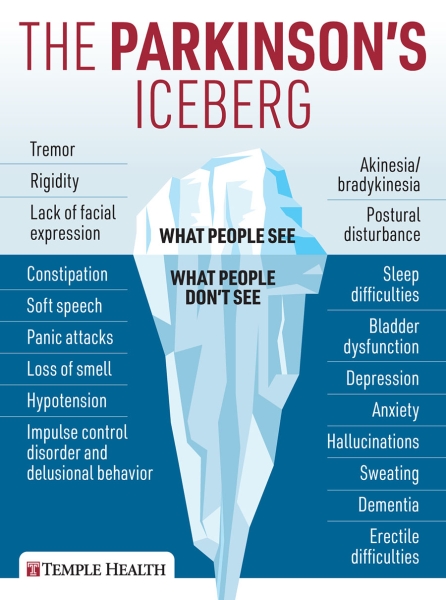In the article written by U.S. News & World Report researchers at the University of Southern California have discovered a genetic mutation that might decrease the odds of having Parkinson's disease by half. This mutation is found in only 1% of people of European descent, but if findings are more thoroughly tested they can possibly create prevention or therapies for the disease.
The mutation is found in the mitochondria, affecting a microprotein called SHLP2. The genetic variant only changes the genetic code of SHLP2 by one singular letter. Dr. Pinchas Cohen discovered the gene mutation in 2016. Other research Cohen had conducted with this gene variant seemed to lessen the chance of cancer. In their research, they compared people of European descent who have been diagnosed with Parkinson's and those without. Those with this gene had half the chance of developing it compared to those who do not. This small mutation prevented the dysfunction of cellular mitochondria, a possible link to what causes Parkinson's disease. The research team even sampled human and mice tissue to test possible cellular connections.
I truly believe that research on diseases such as Parkinson's is extremely important to the genetic field. Not only has the advancement in genetics saved lives, but it will completely change the lives of those who are not born yet. If we can genetically advance ourselves to prevent horrible diseases such as cancer and Parkinson's we will have proven that science and technology advancement has changed our world forever. The more we study and understand these diseases, the more we come closer to curing them.
Sources:
(News Article) https://www.usnews.com/news/health-news/articles/2024-01-05/gene-mutation-protects-against-parkinsons-disease
(Published Study) https://www.nature.com/articles/s41380-023-02344-0
(Alternative Link) https://www.parkinson.org/understanding-parkinsons/what-is-parkinsons


